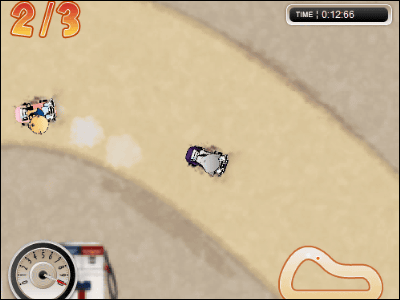Research results that games are more fun to have 'losing risk' than to win

by
Many people think, 'It's more interesting to win a game of unmatched ability than to win an opponent who knows that you will win in a match game.' In fact, psychology experts seriously played Wii Sports Resort and found that it was more fun to lose.
Enjoying the possibility of defeat: Outcome uncertainty, suspense, and intrinsic motivation | SpringerLink
https://link.springer.com/article/10.1007/s11031-014-9425-2
Enjoying the possibility of defeat: Suspense, uncertainty predict how much players enjoy a game-ScienceDaily
https://www.sciencedaily.com/releases/2014/09/140903105443.htm
Why the risk of losing is more fun than an easy win – Research Digest
https://digest.bps.org.uk/2015/01/23/why-the-risk-of-losing-is-more-fun-than-an-easy-win/
The research group of psychologist Sami Abuhamdeh and others at Istanbul Sehir University conducted the psychology experiment at Nintendo's Wii exclusive game 'Wii Sports Resort'. Abuhamdeh colleagues, 'of every four round attracted 72 college students' Wii Sports Resort ' sword fight asked to play the Iaido sword mode', 'fun participants felt-thrilling feeling, their competent Feeling 'and so on.
Also, through the test, the research group said, 'I participated in the experiment as an experimenter and controlled the case where participants win by a large difference and the case where they win by a small difference', but a news site BPS Research Digest operated by the British Psychological Association According to this, this means 'in short, one of the researchers who played for hours in advance and became a master has become an opponent.' However, it seems that participants were told that they are playing CPU battles with varying degrees of difficulty.
As a result of this experiment, the participant's 'competence' was highest when he was far behind the opponent. However, 'Harahara' was best when the score was narrow. And the 'feeling' was the best when I was 'winning close.'

by
In another experiment, the participants were changed to play 'Iai-Kiri' and 'Match' twice, and in the same way as in the first experiment, they controlled whether to win by a large margin or to win by a narrow margin. Was. As a result, the 'competence' was better than 'competitive', but when asked which one to play again after the experiment, 69% of the participants ' 'He said he wanted to play.
In the field of psychology, cognitive appraisal theory is advocated that feeling high in ability leads to motivation. However, this experiment proved that not only the ability to be felt, but also the fun gained by being exposed became important to enjoy things.
The research group points out that the results of this experiment support previous studies on the balance between winning and losing in sports games. In the past, I've found that watching sports, even if you are in favor of your favorite team, is boring to watch matches that vary in ability.

Abuhamdeh commented on the experiment, 'There is little doubt that the theory that successful competitiveness promotes the enjoyment and intrinsic motivation of activities that can do so. However, the results of this study that uncertainty that can or cannot be won is related to fun show another factor: in fact, in some situations, 'motivation of ability' becomes ' There have been examples of being beaten. '
Related Posts:







